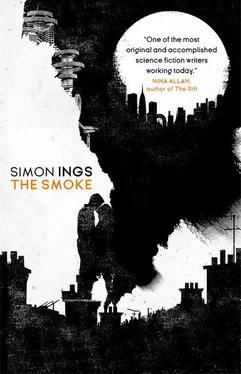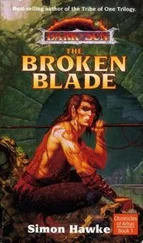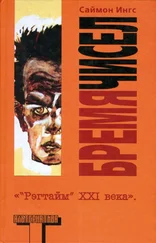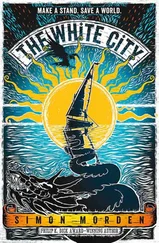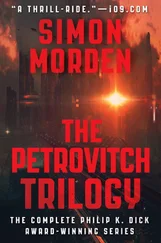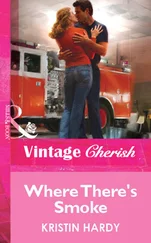Nothing was at scale. I couldn’t even tell how close my head was to the floor. I was seeing out of my right eye, my left eye was glued shut, and when I looked up, I couldn’t tell if the figure crouched in concern over me was very big or simply very near. For sure, it wasn’t human.
‘Ssh, sweet boy,’ it crooned, through needle teeth. Its smile was sincere but its eyes were all black, no iris visible, and I read my terror in them. It put its hand against my wounded cheek. Instantly, I steadied. I took a breath. Another. I raised my hand to touch its hand and it was strange, bony, with wide, spatulate fingers. Gently, it withdrew, and I saw that it was hurt, or that it had been hurt sometime in the past: its nails had been pulled. And then I remembered.
‘You,’ I said.
‘Of course, me. Shush …’
More feet. More running. The guard had seen a boy throwing a stone. He tried to persuade me to leave the train and get someone to look at my eye. I made some feeble gestures at the figure opposite me but it had disappeared. The guard thought I was talking about my attacker. ‘He’s gone, sir. It’s all right. You’re safe.’ I stayed where I was, made belligerent by pain, a handkerchief pressed to my face, and insisted I may as well go on to Halifax, since Halifax had a hospital with an A&E department ‘who know what the hell they are doing’. Peremptory. Dissatisfied. Caustic. I had never sounded more like a Londoner, and after that people left me alone.
The chickie was gone. I couldn’t work out how, and I was in too much shock to care. My handkerchief was all bloody and I still couldn’t open my left eye, but in truth, given how hard I’d been hit, the pain was ridiculously little, as though the chickie, touching me, had salved the cut already.
Despite my appearance, I got the job. With a gauze patch over one eye, blood on the collar of my good suit and my voice pushed by shock into a strangled falsetto, I was, they said, exactly the man they were looking for: the very chap to draw up plans for retaining walls around their new coke plant. They even took the trouble to show me where I would be working. Above the council chamber were bright, glass-roofed offices, clean white work tables, and the air was bleachy with ink and paper and solvent. I felt immediately at home: looking around me, I recognised the appurtenances of my near-abandoned trade. Wet clay and scalpels and sacks full of balsa. Rolls of gridded blue paper. Stencils and slide-rules. The size of the room was bizarre, though perhaps I was seeing awry, still: getting the scale wrong.
The council’s chief architect, a man with an improbably styled shock of white hair and a moustache clipped in the military style, shook some greens into the palm of his hand and offered me one. ‘We’ll show them, yes?’
‘We surely will,’ I said, and I hoped I sounded sincere. The War Ministry had already visited. Funds were even now being allocated. Emergency tax regulations were coming into force by Easter. The West Riding was building its own spaceship. Across the country, fully twenty ships had been ordered to avenge the death of the Victory .
I had expected to be kept waiting in a room full of other candidates, interrogated for at most twenty minutes, then sent home to await the bad news. But there hadn’t appeared to be any other candidates, my interviewers kept me talking till noon, and they would have given me lunch if by then my face had not swelled up like a balloon. The chief architect insisted a chauffeur take me to a private clinic on the outskirts of the city, where they unbandaged me, tutted at the shoddy workmanship of the public service, and sewed up the corner of my eye with thread so thick and tough, it felt as though you could have mended a sail with it.
Feeling equal parts elated and nauseous, I swam more than walked out to the street, and a small figure barrelled towards me, like a boy but not, wearing a tasselled skirt, high heels and a feathered bolero shirt. As it flew past, it thrust into my hands a brown paper package the size and weight of a shoebox.
Fortune had been making such a plaything of me that day, I hardly dared open the package. I don’t know what I expected. Sheep droppings. A severed rabbit’s head. Used banknotes. Doubloons. I looked about me. The street was empty. If the box blew up in my hands, at least there were no passers-by to be injured. I opened it up.
Inside the box were six sheets of vacuum-moulded plastic parts, a paint chart and numbered assembly instructions.
I took the package home, laid out its contents on my bed, went around to Bob’s that evening and, under the guise of telling him the good news about my job – ‘an immediate start, and a month’s pay in advance!’ – fetched from my bedroom an unopened tube of modelling cement, a craft knife and my green vinyl cutting mat.
I hurried back to my rented room. It hardly registered with me that my window was still intact, that my landlady had not turned up at my door with a horror story of thugs lingering outside the building, or taken one look at my bandaged face and sent me packing, or, indeed, seen me at all. All the other events of the day were a grey blur to me as I tweezered and cut the grey plastic pieces from their frames and spread them on the mat. The instructions were clear, the pieces were few, but my hands were shaking so much I got glue all down the front of the figure’s uniform. I had to wait for it to harden, then shaved it off with a scalpel. I didn’t have any fine sandpaper and I was afraid that when the model was complete, the nubs that had attached each piece to its sheet would stop its joints from articulating properly. It never occurred to me that, once the model was done, it would be able to make its own repairs.
The jaw needed no glue. It just snapped into place. And then it was complete: a grey plastic miniature rendition of Jim, my dead brother.
Jim’s jaw clicked up and down. The figure tried to stand. I scooped him up and laid him on my pillow, shushing him. ‘You’re still wet.’
I was so afraid of crushing him, I slept on the floor, the rug wrapped around me. Jim, in a voice squeaky from miniaturisation, insisted I at least take the pillow. Even so, by morning, I woke with the whole left side of my face aching as though it had been assaulted with hammers.
I don’t think I even glanced at the bed as I stumbled out of the room. I had it in my head that I must have got drunk. That if I couldn’t remember the pub, then I must have drunk enough to black out. That drinking enough to black out would at least explain the absurdity of my dreams.
I went downstairs to the bathroom and studied my face. The doctors had assured me that my scratched cornea would soon heal. My left eye looked like a raw egg in a dish of blood. My cheek was a perfect round purple lump, as though someone had stuck a piece of liver on my face. My landlady walked in, saw me and screamed.
I had forgotten to shut the bathroom door.
* * *
My Halifax job didn’t impress my landlady much. She resented the insistent way I locked the door of my room each morning and pocketed the key. She resented my never letting her in to clean. Every so often, I’d find a reason to show her the room. That way I could demonstrate that nothing untoward was going on and that I was more than capable, thank you, of stripping and making my own bed. ‘I have papers here,’ I told her. ‘Confidential papers. You understand.’
In truth, I did have such papers in the room, plans released to me on the strict condition that I hide them from casual view. But it was Jim I was most concerned about. Where he came from, I could not begin to guess. Jim himself did not know but, in that silly, squeaky voice of his, he speculated: ‘I must be a Bundist thing, don’t you think?’
Читать дальше
